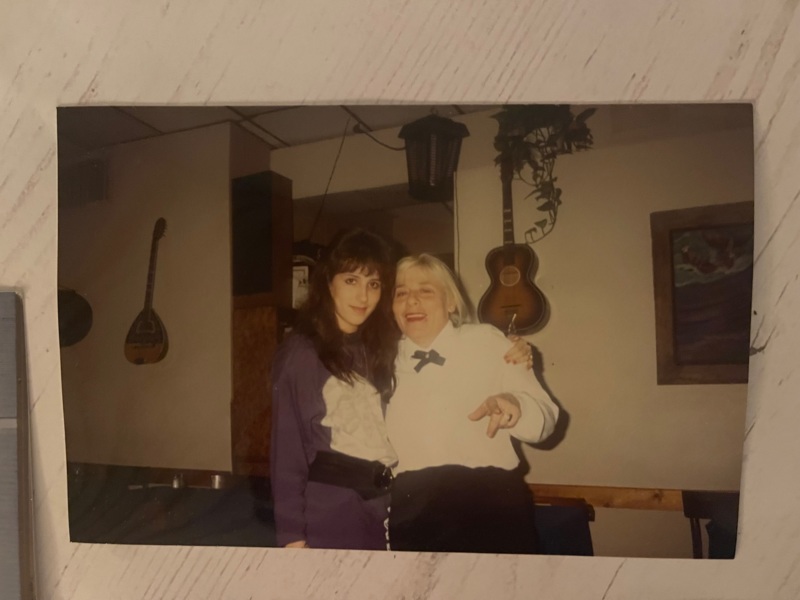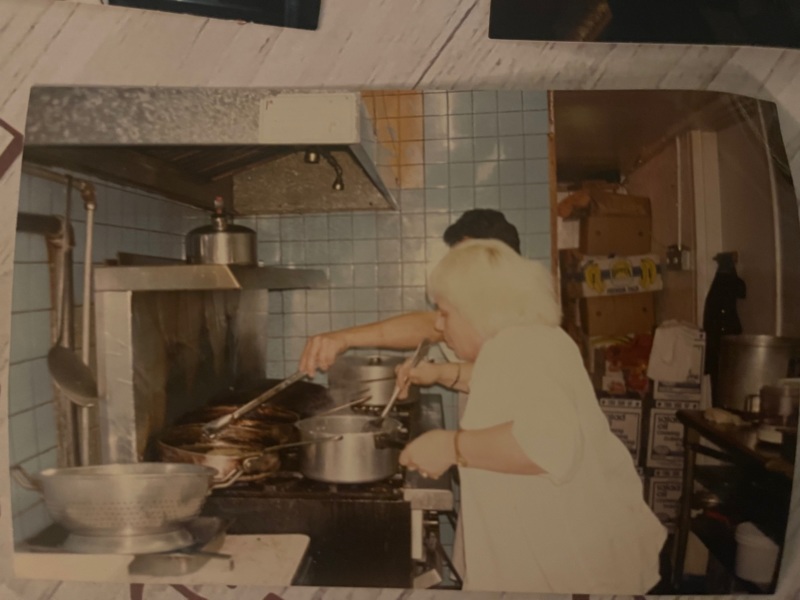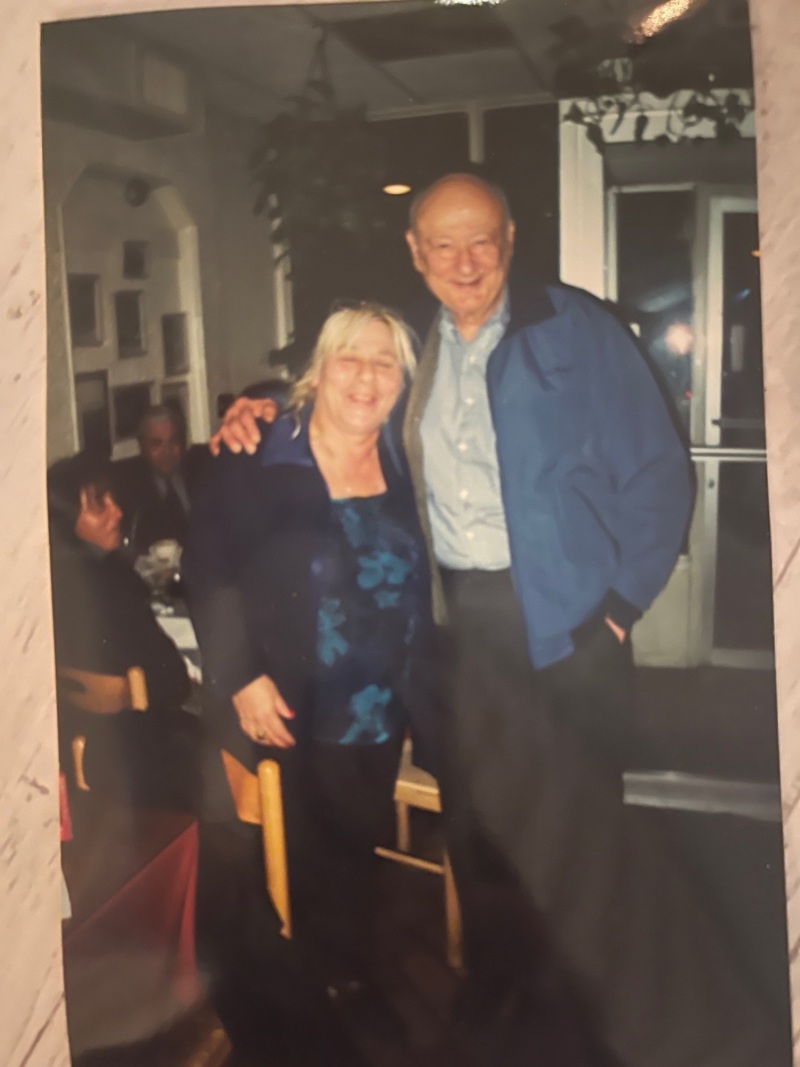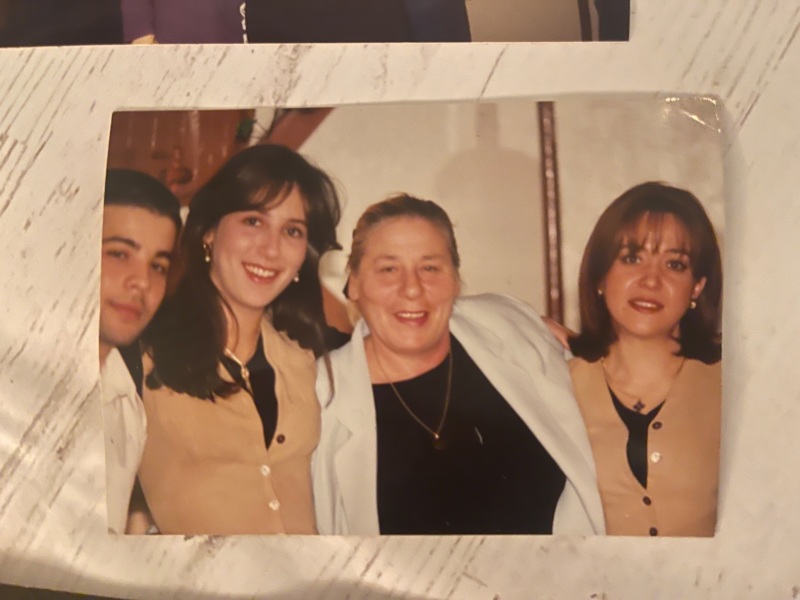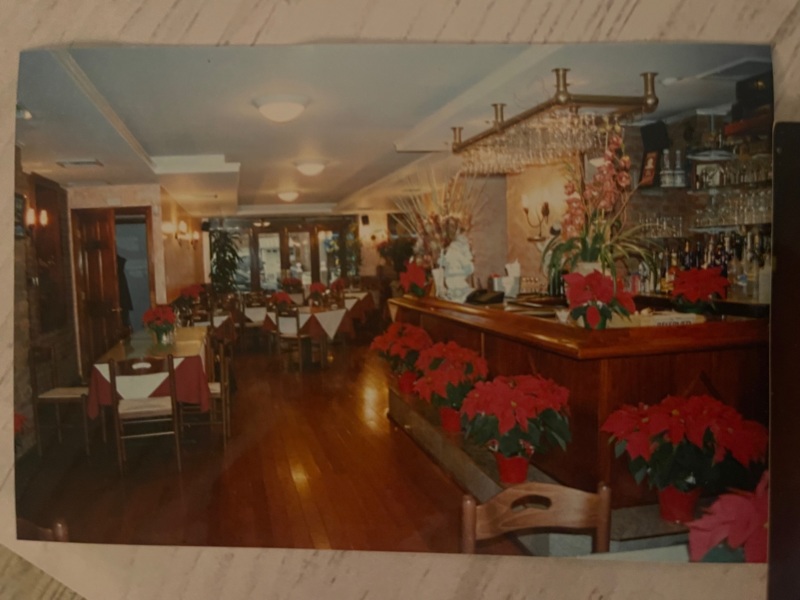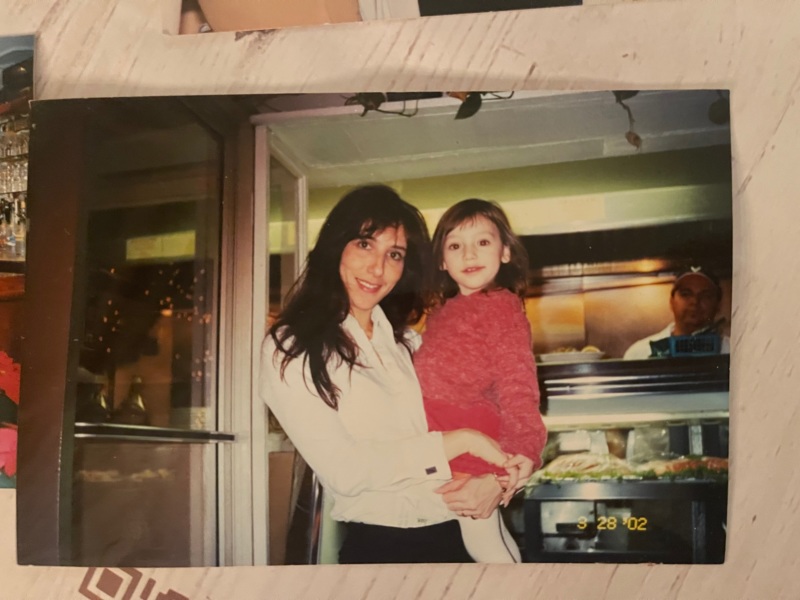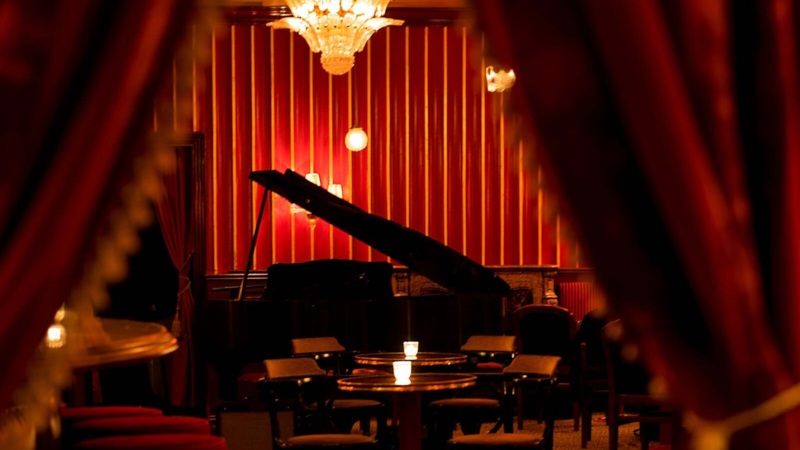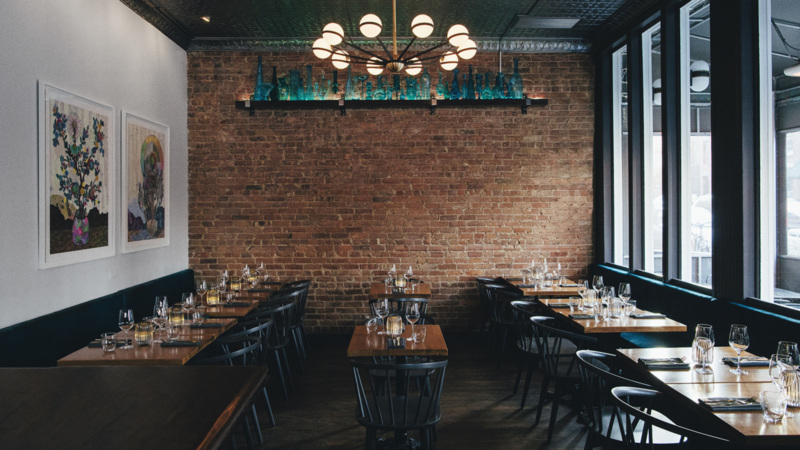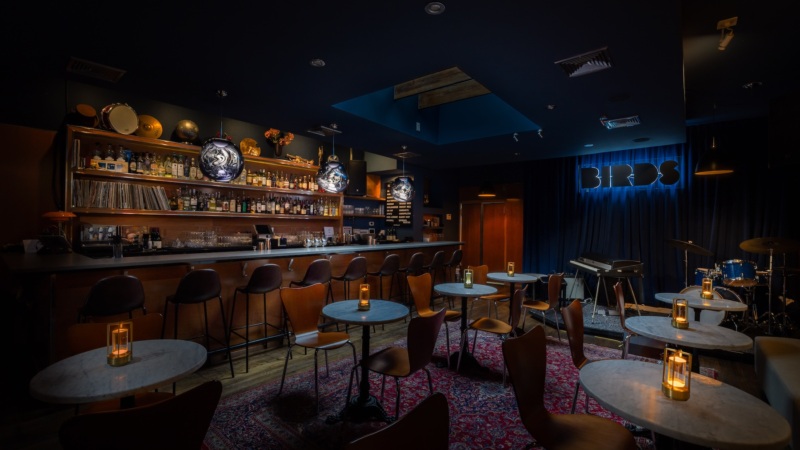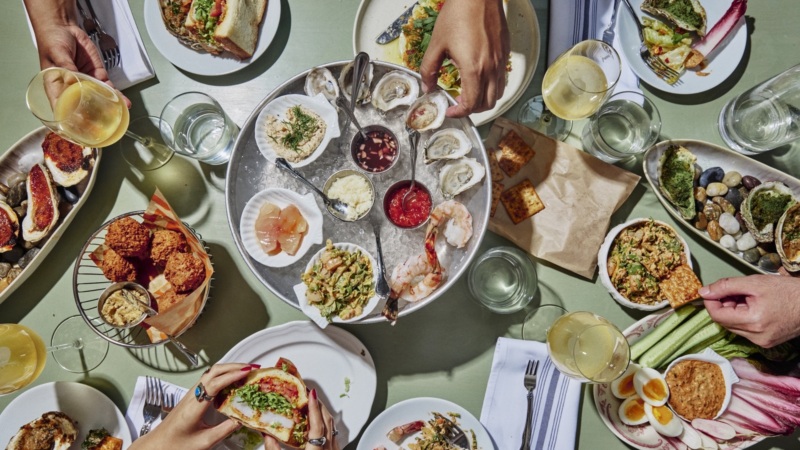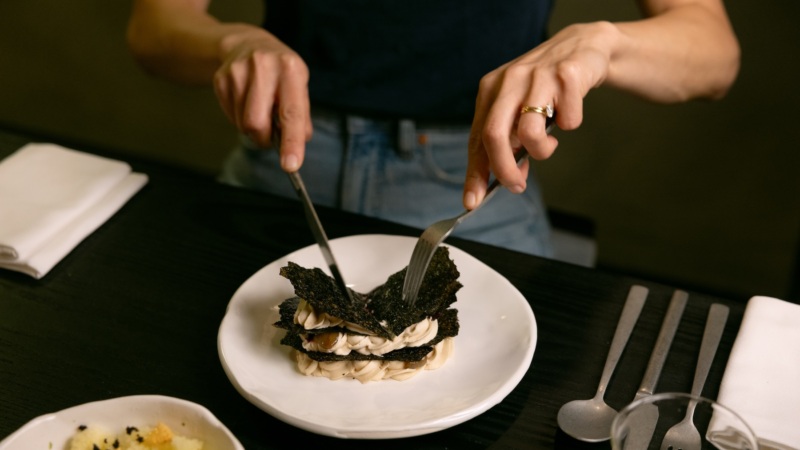
How Telly’s Taverna Stays True to Its Roots, Even as It Changes With the Times
Published:
The first time that I stepped into Telly’s Taverna, I was with a friend who worked in the fish business. It was many years ago, and my friend told me this was the best restaurant in all of Astoria, Queens, for grilled fish.
The minute we walked in, I felt like we were already family. The owner, Joanna “Nana” Loiselle came to our table, made suggestions on what to order, and her enthusiasm was infectious. We weren’t given special treatment – Nana treated every table with a genuine appreciation of her customers and a genuine desire to make everyone feel as if we were special. And that’s what made me, and so many others, faithful regulars all these years, long after I moved from Queens to Westchester.
It’s not often that you find a place like Telly’s Taverna, a family-owned restaurant that’s evolved with the city and with the times since it first opened in 1990. And throughout it all, it’s been helmed by two generations of Loiselle women: first, Nana, and now her daughter, Dianna. I caught up with Dianna to ask her about Telly’s past, present, and future.
Resy: Tell us the story of how Telly’s Taverna opened.
Loiselle: In 1990 a space became available for my mother to open her own business, and with an associate, Telly Vagianderis [who passed away in 2006], Telly’s Taverna was born. The building was for sale for $35,000, and my mother put the full amount on all her credit cards.
On the day it opened, there were lines from when the restaurant opened its doors in the late afternoon until closing. We only served beer and wine and didn’t take reservations at the beginning. There was seating for 45 customers.
The restaurant was very old-school — just a family-gathering type of place. The furnishings were dark brown and we had a mirror in the back to try to make the place look bigger. The silverware, glasses and plates were all mismatched. People came for the food; not for the décor.
Our menu at that time was whatever was fresh at the market that day. There wasn’t the same variety of fish available to us at that time as there is now. The grilled fish not only was a big hit in Astoria, but drew customers from other neighborhoods in Queens and Long Island. Nothing was pre-cooked and the side dishes generally were dandelion greens, fried zucchini or beets.
Can you tell us more about your mother? What brought her to Astoria?
My mother, Joanna “Nana” Loiselle, was a Greek immigrant who moved to the United States in 1966, and made her way to Astoria from Houston in 1987, after a divorce. She could speak English but not read or write it, and Astoria was an ideal place for her. Nana’s name already preceded her; she had opened a Greek supper club in Phoenix, Ariz. in the late 1970s. My mother was a real go-getter; always looking for a better job and a better life.
Working in restaurants has long been a career path for immigrants, and being in Astoria allowed my mother to be embraced by its large Greek community. She had some restaurant experience from both Greece and the U.S., and got a job cooking at Elias Corner, another Astoria mainstay. Nana started cooking grilled whole fish at the restaurant, which had been serving more traditional Greek items such as souvlaki and gyro.
For people who might be unfamiliar with Astoria, how would you describe it to them? How influential is the Greek community there?
Astoria represents Queens: It is always changing and evolving. When we first moved to Astoria it was a community of Greek, Italian, and Irish residents. Most of the storefronts had signs completely in Greek. Many people who came here from Greece never felt the need to learn English because everybody in their daily lives spoke Greek.
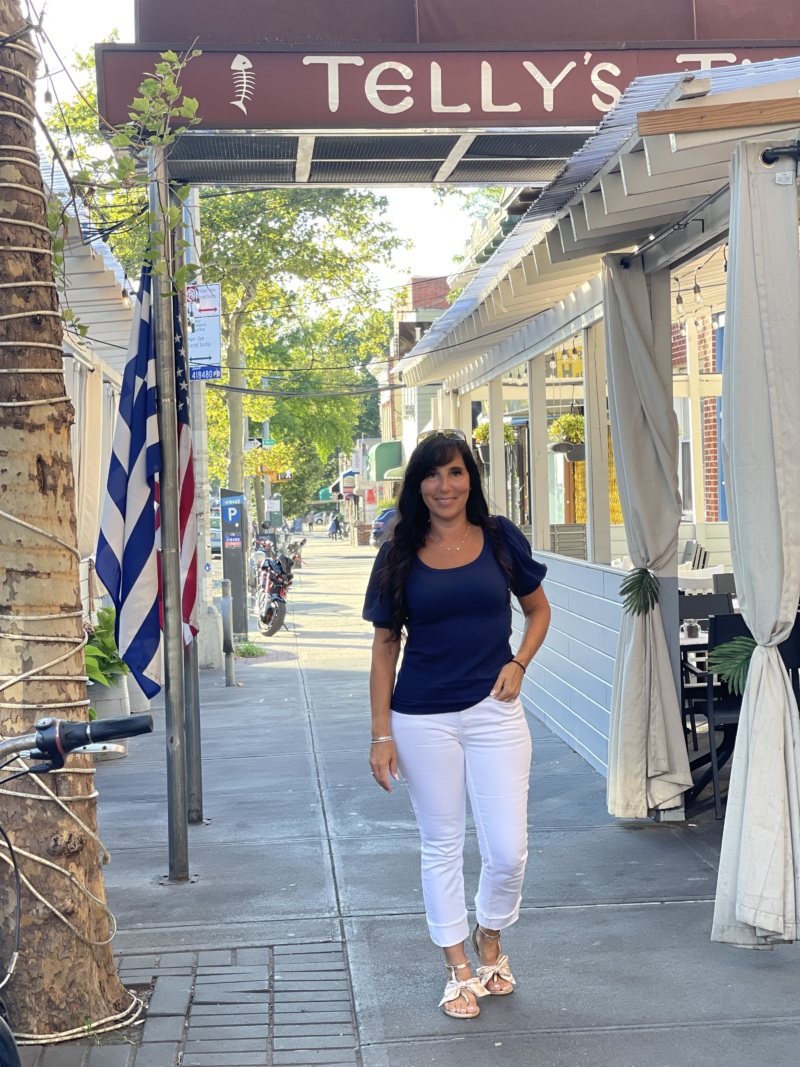

How has Astoria changed since Telly’s Taverna opened?
I’ve seen the neighborhood change tremendously over the years. The restaurant had to weather the city’s downturn in the 90’s, and then experienced the renaissance in Astoria as millennials embraced Queens. To enjoy the longevity of being in business for more than 30 years, people have to have what I call, “A really big stomach,” meaning there has to be a real devotion to the restaurant.
What was it like for your mother to be a restaurant owner in the ’90s?
While women-owned restaurants are still a distinct minority today, it was even rarer in the 1990s to have a woman own and operate her own restaurant. There were no women at any of the markets where my mother went to get her food for the restaurant — it was a very masculine arena. It forced her to learn to be tough and stand up for herself.
However, my mother used to comment, “I wasn’t the boss that I should have been,” meaning she felt she had to do everything on her own, instead of delegating to others. I think that’s an issue a lot of women owners have.
What was your own introduction into the restaurant business?
I’ve been in the restaurant business informally since I was five years old, earning my first paycheck at the age of 11. My help was always needed there. I was a server for 25 years. I went to college and worked at an insurance agency at one point, but was always working at the restaurant. I thought I was going to open my own place one day, but in 2009, with my mother feeling burnt out, I took over Telly’s and she retired. The restaurant was very different by then.
Telly’s was, always has been, and always will be a place where you get top-quality homemade food. It’s not gourmet; it’s just simple recipes prepared with no coverups.
What are your earliest memories of Telly’s Taverna?
I remember us as a tiny restaurant with 35 chairs all smashed up next to each other. We opened at 3, and by 3:15 the lines had already started outside. There was very little space to pass in between or walk through the people to serve the food.
And how has the restaurant changed since?
We expanded in 2003, which brought our capacity to 250 customers. We added items such as moussaka and spinach pie, more traditional Greek dishes, to the menu, and built a bar serving cocktails.
What do you think made Telly’s Taverna such a beloved restaurant over the years? How did it stand out from the other Greek restaurants in the neighborhood?
To be honest, Telly’s was the neighborhood restaurant for people who lived here, but it was also a destination for people who moved. There are people who have been eating here for 30 years, four or five times a week; there are also customers who come to us for the first time, or come back from far away. Telly’s was, always has been, and always will be a place where you get top-quality homemade food. It’s not gourmet; it’s just simple recipes prepared with no coverups. Telly’s [Loiselle asserts] was the first place that started grilling and serving whole fish – head and tail on, bones and all.
Do you have any personal favorite dishes?
I love our simply grilled black Angus ribeye steak, our fresh branzini, and I have to say one of my most favorite things is the fresh pan-fried calamari, lightly floured.
You’ve also expanded Telly’s to Westchester County, N.Y., too. How has the expansion impacted you and how you run the business?
Some days I’m all over the place. Most days I’m at one place in the morning and the other in the evening. We had been closed in Port Chester for many months as we were closed from Hurricane Ida. We recently reopened but we are desperately seeking staff. We always had clients drive to Astoria from Westchester; now they can visit both.
There are both pros and cons to having a restaurant such as the Astoria one with customers who are long-time regulars, who have my cell number and aren’t afraid to use it. They’re my eyes and ears in a sense; they’re quick to point out if there isn’t enough feta in the Greek salad, or if the potatoes aren’t cooked the way they normally are.
Beyond getting feedback from customers, I rely on an invaluable employee who’s been with me for 32 years. With the two restaurants I have to make sure I have someone I can trust in my absence.
Women in the hospitality industry are a must. I always find myself surrounded by hard-working women who are problem-solvers. These women don’t give up and if they hit a closed door, they don’t let that deter them.
What is it like being a woman in the still male-dominated restaurant industry?
While there are always exceptions, I think many men in the hospitality industry are in it as a bridge to other careers. I’ve found with other female owners they’re more personally involved in the work. There’s been some progress, but I’m still one of the few women at the fish or vegetable markets.
I also find myself juggling the demands of the restaurants with the needs of my family. I know other women who owned restaurants and stepped away because of that reason. But women in the hospitality industry are a must. I always find myself surrounded by hard-working women who are problem-solvers. These women don’t give up and if they hit a closed door, they don’t let that deter them.
Do you ever talk to your mom about the challenges you’ve both faced as restaurant owners? Is she still involved? Are other members of the family a part of the business, too?
I talk to my mom all the time. We talk about what we used to pay for things and how outrageous prices have become – even beyond the food costs. We talk about payroll, real estate taxes, New York City fees and fines, permits and business fees. She cannot imagine paying these prices.
She’s no longer involved since retiring. She doesn’t miss the business itself because of the changes, but she does reminisce about greeting people when they walked into the restaurant and speaking to them as they were leaving. There are no other family members working here but there are people who have worked here so many years that they’ve become family. I love my staff and know they love me as well.
What do you think the legacy of Telly’s Taverna is, or what do you hope it will be?
I still find it amazing when I’m at the Astoria restaurant with customers who have frequented Telly’s from its beginning, their children and their grandchildren. We think of ourselves as a constant in an ever-changing neighborhood. I think Telly’s is an example of New York coming back, as a place where people are out and about. They’ve always said this city will never die – I believe that.
And obviously, you know, the producers of Jeopardy! recognized the staying power of Telly’s. In one of its Queens-based answers [in a 2013 show] they said, “It ain’t no Waldorf, but this neighborhood has lots of Greeks, & Telly’s Taverna — to die for,” and the question was “What is Astoria?”
Telly’s Taverna in Astoria is open daily from 11 a.m. to 11 p.m. In Port Chester, it’s open from 4 to 10 p.m. on weekdays and from noon to 11 p.m. on weekends.
Abbe Wichman is a freelance food and drink writer based in Westchester, N.Y. She is a contributor to HuffPost Life and Westchester Magazine and her work has appeared in Spoonful and a variety of Edible publications. Follow her on Instagram and Twitter. Follow Resy, too.
